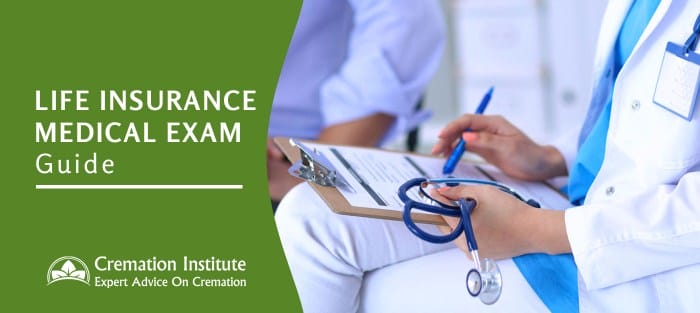Preparing for a life insurance medical exam can be a daunting task, but with the right strategies, you can increase your chances of success. This comprehensive guide provides valuable tips and insights to help you navigate the process seamlessly. Whether you’re a health enthusiast or someone seeking to improve your insurability, this guide has something for everyone.
From lifestyle habits and medical history to mental health and stress management, we’ll cover every aspect that can influence your exam results. Learn how to optimize your health, prepare for the exam, and present yourself in the best possible light.
By following these expert tips, you can confidently approach the medical exam and secure the life insurance coverage you need to protect your loved ones.
Medical Conditions and History

Medical conditions and past medical history play a crucial role in determining the outcome of a life insurance medical exam. Insurance companies assess the risk associated with insuring an individual based on their health status. Certain chronic diseases and medical conditions can impact the underwriting process and may lead to higher premiums or even denial of coverage.
Chronic Diseases
Chronic diseases are long-term conditions that require ongoing management and treatment. Some common chronic diseases that may affect life insurance coverage include:
- Diabetes: Diabetes is a metabolic disorder characterized by high blood sugar levels. It can increase the risk of heart disease, stroke, and kidney failure.
- Hypertension: Hypertension, also known as high blood pressure, can strain the heart and lead to heart disease, stroke, and kidney failure.
- Heart Conditions: Heart conditions, such as coronary artery disease, heart failure, and arrhythmias, can increase the risk of death and disability.
- Cancer: A history of cancer, especially if it is advanced or has a high risk of recurrence, can impact life insurance coverage.
- HIV/AIDS: HIV/AIDS is a chronic infection that can weaken the immune system and increase the risk of various illnesses.
The severity of the condition, the stage of the disease, and the response to treatment are all factors that insurance companies consider when assessing the risk.
Medications and Supplements

Life insurance companies use medical exams to assess an applicant’s overall health and determine the risk of insuring them. Certain medications and herbal supplements can raise red flags and impact insurability. It’s crucial to disclose all medications and supplements accurately during the application process.
Medications and supplements can affect insurability in several ways. Some medications may indicate an underlying health condition that increases the risk of death or disability. Others may have side effects that could lead to health problems in the future. Herbal supplements can also pose risks, especially if they interact with other medications or have unknown side effects.
Prescription Medications
Certain prescription medications can raise red flags during a life insurance medical exam. Examples include:
- Blood thinners: These medications can increase the risk of bleeding, which can be a concern for certain medical procedures.
- Antidepressants: Some antidepressants can cause side effects such as drowsiness, dizziness, and impaired judgment, which could increase the risk of accidents.
- Anticonvulsants: These medications can cause side effects such as drowsiness, dizziness, and impaired coordination, which could also increase the risk of accidents.
- Chemotherapy drugs: These medications can weaken the immune system and increase the risk of infections.
- Immunosuppressive drugs: These medications can also weaken the immune system and increase the risk of infections.
Herbal Supplements
Some herbal supplements can also raise red flags during a life insurance medical exam. Examples include:
- Ephedra: This herb can cause side effects such as increased heart rate, high blood pressure, and anxiety.
- Ginkgo biloba: This herb can increase the risk of bleeding and interact with certain medications.
- St. John’s wort: This herb can interact with certain medications, including antidepressants and birth control pills.
- Kava: This herb can cause side effects such as drowsiness, dizziness, and impaired judgment.
- Yohimbe: This herb can cause side effects such as increased heart rate, high blood pressure, and anxiety.
Family History

Family history plays a significant role in determining your health risks and can impact the outcome of your life insurance medical exam. It is crucial to disclose any family history of major illnesses, such as cancer, heart disease, and stroke, to the insurance company.
This information helps them assess your overall health profile and determine the appropriate insurance coverage and premium rates.
Understanding the Impact of Family History
Your family history can influence your risk of developing certain health conditions due to shared genetic factors and lifestyle habits. For example, if your parents or siblings have a history of cancer, you may have an increased risk of developing the disease.
Similarly, a family history of heart disease or stroke can raise your chances of experiencing these conditions.
It’s important to note that family history does not guarantee that you will develop a particular illness. However, it serves as a valuable indicator of potential health risks and helps insurance companies make informed decisions about your policy.
Disclosing Family History to the Insurance Company
When applying for life insurance, it is essential to disclose any family history of major illnesses accurately and completely. This information should include the following details:
- Name and relationship of the family member with the medical condition
- Specific medical condition and its severity
- Age at diagnosis and, if applicable, age at death
- Whether the condition is still active or has been resolved
Providing accurate family history information allows the insurance company to assess your risk profile accurately and determine the appropriate premium rates. Withholding or misrepresenting this information can lead to complications in the underwriting process and may affect the validity of your policy.
Weight and Body Mass Index (BMI)

Your weight and Body Mass Index (BMI) are significant factors that life insurance companies consider when assessing your application. Maintaining a healthy weight and BMI can improve your insurability and potentially lower your premiums.
The table below demonstrates the correlation between weight, BMI, and life insurance premiums:
| Weight Category | BMI Range | Average Life Insurance Premium |
|---|---|---|
| Underweight | Less than 18.5 | Higher premiums due to increased risk of health issues |
| Normal Weight | 18.5 to 24.9 | Standard premiums |
| Overweight | 25.0 to 29.9 | Slightly higher premiums due to increased risk of health issues |
| Obese Class I | 30.0 to 34.9 | Moderately higher premiums due to increased risk of health issues |
| Obese Class II | 35.0 to 39.9 | Substantially higher premiums due to increased risk of health issues |
| Obese Class III | 40.0 or higher | Very high premiums due to significantly increased risk of health issues |
As you can see, maintaining a healthy weight and BMI can have a significant impact on your life insurance premiums. By keeping your weight within a healthy range, you can improve your overall health, reduce your risk of developing chronic diseases, and potentially save money on your life insurance policy.
Physical Activity and Fitness Level

Maintaining an active lifestyle and a healthy fitness level can significantly enhance your chances of passing a life insurance medical exam. Regular exercise offers numerous benefits that positively impact various health markers, contributing to overall well-being and reducing the risk of chronic diseases.
Exercise and Health Markers
- Blood Pressure: Exercise helps lower blood pressure by strengthening the heart and improving blood flow. Lower blood pressure reduces the risk of heart disease and stroke, two major factors considered in life insurance assessments.
- Cholesterol Levels: Physical activity increases high-density lipoprotein (HDL) cholesterol, the “good” cholesterol, while decreasing low-density lipoprotein (LDL) cholesterol, the “bad” cholesterol. This balance helps prevent plaque buildup in arteries, reducing the risk of heart disease and stroke.
- Weight Management: Exercise aids in maintaining a healthy weight, reducing the risk of obesity and related health issues like type 2 diabetes and heart disease. Life insurance companies often offer lower premiums to individuals who maintain a healthy weight.
- Overall Well-being: Regular physical activity improves mood, energy levels, and sleep quality. It also reduces stress and anxiety, contributing to better mental health and overall well-being, which can positively influence life insurance assessments.
Infographic: Benefits of Regular Physical Activity
Design an infographic highlighting the benefits of regular physical activity and maintaining a healthy fitness level for passing a life insurance medical exam. Include statistics, visuals, and key takeaways to make the information engaging and easy to understand.
- Heart Health: Include data on how regular exercise reduces the risk of heart disease and stroke, the leading causes of death globally.
- Diabetes Prevention: Highlight the link between physical activity and reduced risk of type 2 diabetes, a major health concern associated with increased life insurance premiums.
- Weight Management: Display statistics on how exercise helps maintain a healthy weight, reducing the risk of obesity and related health issues.
- Mental Well-being: Emphasize the positive impact of exercise on mood, energy levels, and sleep quality, contributing to overall well-being.
- Life Insurance Premiums: Include information on how maintaining a healthy fitness level can lead to lower life insurance premiums, making it a financially beneficial choice.
Preparing for the Exam

Life insurance medical exams can be daunting, but preparation can help ensure a smooth and successful experience. Follow these steps to get ready for your exam:
1. Fast Beforehand
Follow the fasting guidelines provided by your insurance company. This usually involves abstaining from food and beverages (except water) for a specific period before the exam. Fasting helps ensure accurate test results.
2. Stay Hydrated
Drink plenty of water in the days leading up to your exam. Proper hydration helps maintain your body’s normal functions and supports accurate test results.
3. Disclose Medical Information Accurately
Be honest and transparent when answering questions on your application and during the medical exam. Withhold information about pre-existing conditions or medications can affect your policy coverage or even lead to policy denial.
4. Know Your Family History
Be prepared to provide information about your family’s medical history, including any major illnesses or conditions. This helps the insurance company assess your risk profile.
5. Manage Your Weight and BMI
Maintaining a healthy weight and body mass index (BMI) can positively impact your life insurance rates. If you’re overweight or obese, consider working with a healthcare professional to develop a weight management plan.
6. Engage in Regular Physical Activity
Regular exercise and physical activity can improve your overall health and fitness level, which can be reflected in your life insurance rates. Aim for at least 30 minutes of moderate-intensity exercise most days of the week.
7. Quit Smoking and Limit Alcohol Consumption
Smoking and excessive alcohol consumption can negatively impact your health and increase your risk of certain diseases. Quitting smoking and limiting alcohol intake can improve your overall health and potentially lower your life insurance premiums.
8. Get Adequate Sleep
Ensure you get enough quality sleep in the days leading up to your exam. Sufficient sleep helps your body function optimally and supports accurate test results.
9. Avoid Stress
Stress can temporarily affect your health and test results. Practice relaxation techniques like deep breathing or meditation to manage stress levels before your exam.
10. Review Your Application
Carefully review your life insurance application before submitting it. Ensure all information is accurate and complete. Any errors or omissions can delay the processing of your application or even lead to its denial.
Final Thoughts

In conclusion, passing a life insurance medical exam is a crucial step in securing financial protection for your loved ones. By adopting healthy lifestyle habits, managing your medical conditions, and preparing thoroughly for the exam, you can significantly improve your chances of a favorable outcome.
Remember, honesty and transparency are key throughout the application process. With the right approach and a commitment to your health, you can confidently navigate the medical exam and secure the life insurance coverage you deserve.
Answers to Common Questions
Question: Can I still pass the medical exam if I have a history of chronic diseases?
Answer: While chronic diseases can impact your insurability, it’s not necessarily an automatic disqualification. The insurance company will assess your overall health, current condition, and treatment plan. By managing your condition effectively and maintaining a healthy lifestyle, you can still qualify for life insurance coverage.
Question: How far back does the insurance company look into my medical history?
Answer: The insurance company typically reviews your medical history for the past 5 to 10 years. However, they may request additional information if they identify any red flags or inconsistencies in your application.
Question: What if I take prescription medications? Will that affect my insurability?
Answer: Prescription medications can impact your insurability depending on the type of medication and the condition it’s prescribed for. The insurance company will evaluate the potential risks associated with your medication and how it may affect your overall health and longevity.
Question: How can I prepare for the medical exam to ensure the best results?
Answer: Preparation is key to a successful medical exam. Get a good night’s sleep, eat a healthy breakfast, and avoid caffeine and alcohol before the exam. Be honest and transparent in your application, and provide accurate information about your medical history and lifestyle habits.



